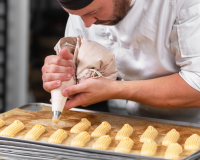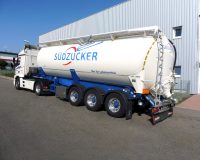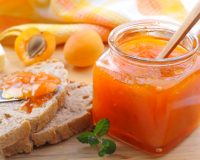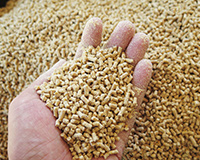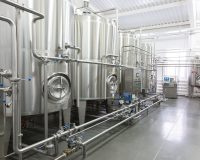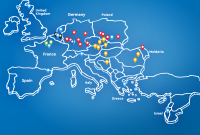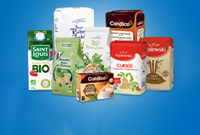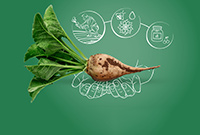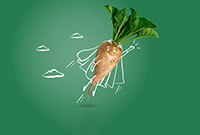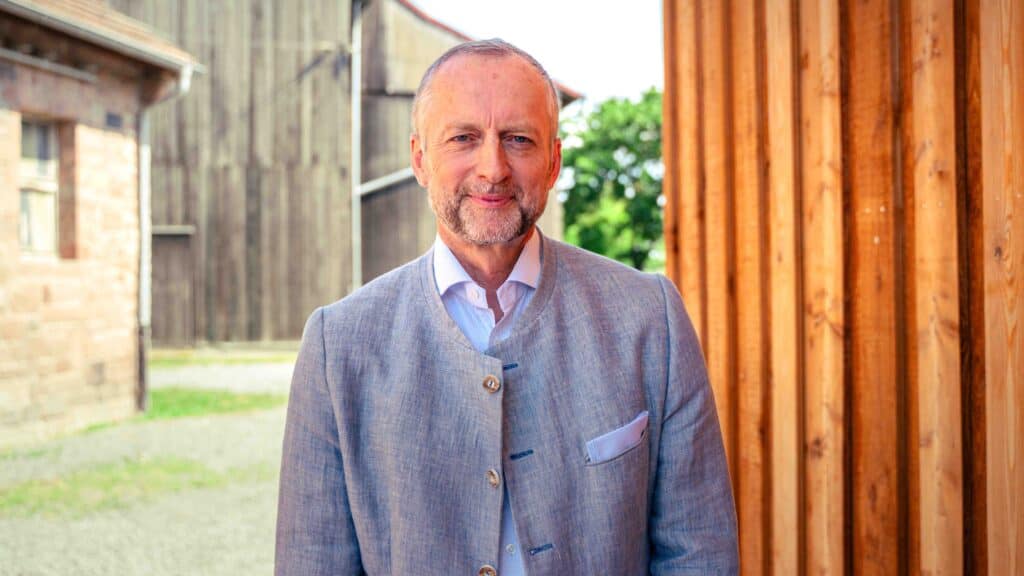
Team Up for Growing Tomorrow: Connecting Growers and Researchers to Cultivate a More Sustainable Future in Agriculture
Dr Georg Vierling, Head of Beet Cultivation and New Plants at Südzucker, shares insights on how new beet varieties, breeding innovation and biodiversity, are shaping the future of sugar beet cultivation—and why close partnerships with farmers and researchers is key to moving forward.
Südzucker: Who are you and what is your role at Südzucker?
Dr Georg Vierling: My name is Georg Vierling, I am responsible for the beet and faba bean production in the Südzucker Group and currently I am also very busy with our SBR task force*. And the last area of my responsibility is the question of sustainability of the raw material supplies.
* Editor’s Note: SBR is a bacterial disease, Syndrome Basses Richesses. The vector is a plant hopper. The task force coordinates German wide research and field trials to combat the spread of SBR.
Südzucker: How are new beet varieties changing the perspective on sustainable sugar beet cultivation?
Dr Georg Vierling: The impact of new selections and breeding technologies is a particularly important issue. With climate change intensifying, we have more pests and diseases. Breeders have the power to influence crop varieties and raw materials – ensuring field performance. Their work is key to fight against pests and diseases in the future.
Südzucker: How do regulatory changes such as the reduction of crop protection products or plant protection products affect your work?
Dr Georg Vierling: Regulatory changes have a major impact on our work. Our growers want to produce regional food for the consumers, but we are facing more regulations in Europe and especially in Germany. One example is the regulation of pesticides and plant protection. With fewer plant protection products available to the beet growers, we must make it clear to governments that ensuring food production is only possible with a minimum level of plant protection.
Südzucker: What role does biodiversity play in variety selection and crop rotation planning?
Dr Georg Vierling: For Südzucker and our growers, biodiversity plays a key role in variety selection and crop rotation planning. Sugar beet cultivation is integrated in crop rotation on the field, and the biggest part of growers are adapting their soil tillage practices to minimise carbon loss. More beet growers are integrating covering crops or flowering strips in the whole crop rotation.
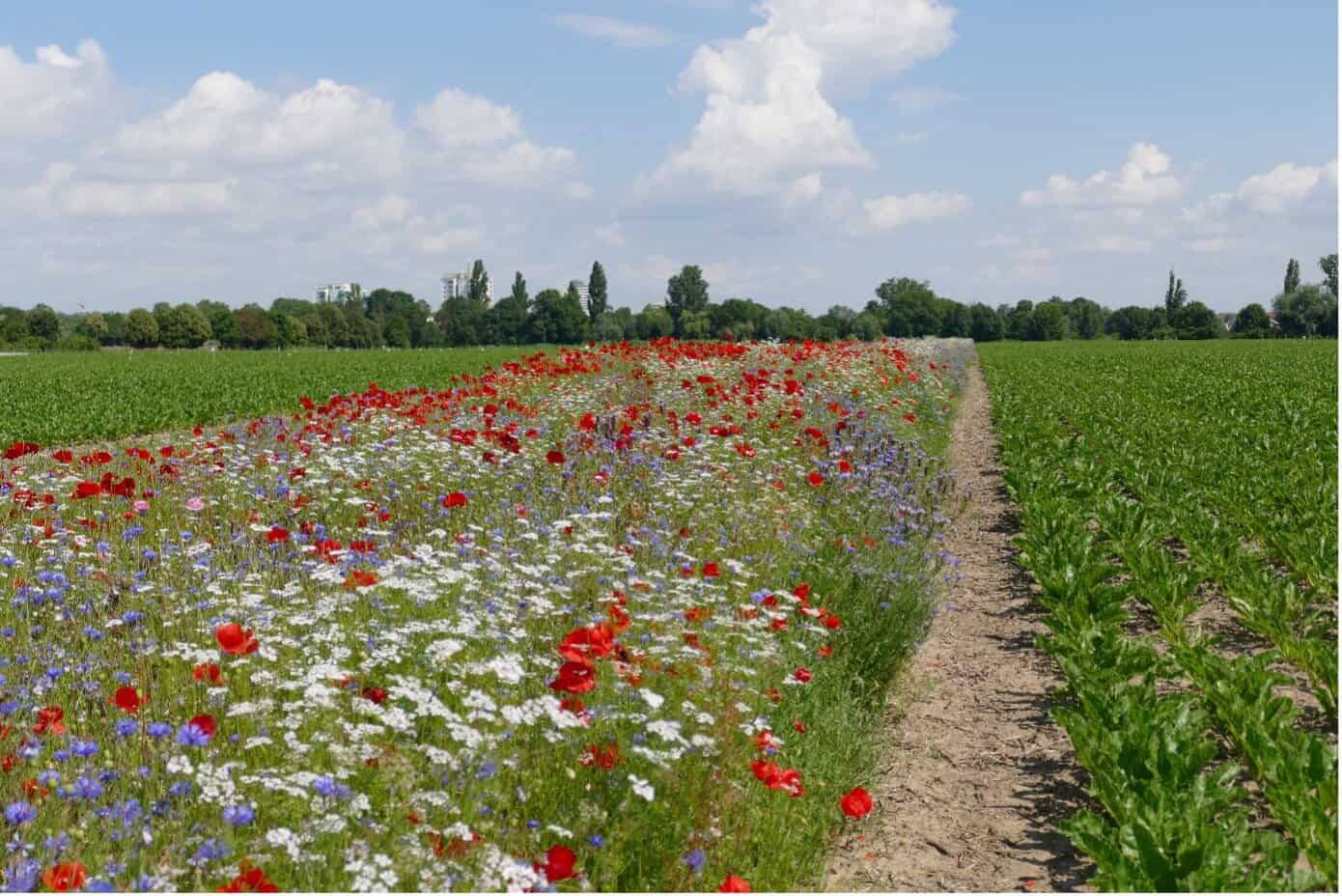
Südzucker: What capabilities must new crops have in the future to fit into a sustainable agricultural system?
Dr Georg Vierling: I think the most important thing is the market. There needs to be a clear opportunity for commercialization. Another important issue for farmers is climate change. New crops must be able to adapt to climate change and handle dry periods and hot temperatures. That is why breeding new plant varieties is so important. These new varieties help farmers deal with climate challenges, so they can keep growing crops in their field.
Südzucker: How important is the exchange with farmers in your work, and what insights do you take back into research from practice?
Dr Georg Vierling: I work at the interface between growers and researchers. At Südzucker, we have a strong relationship with our beet growers – around 10,000 beet growers in Germany alone. One aspect is the theoretical perspective coming from universities and research. But the other is what is realistic – what works in the field. That is why we have such a strong relationship with our growers and why we meet regularly with farmers, for example on field days. Without this close connection to the growers, we would not be able to realise our group’s ideas.
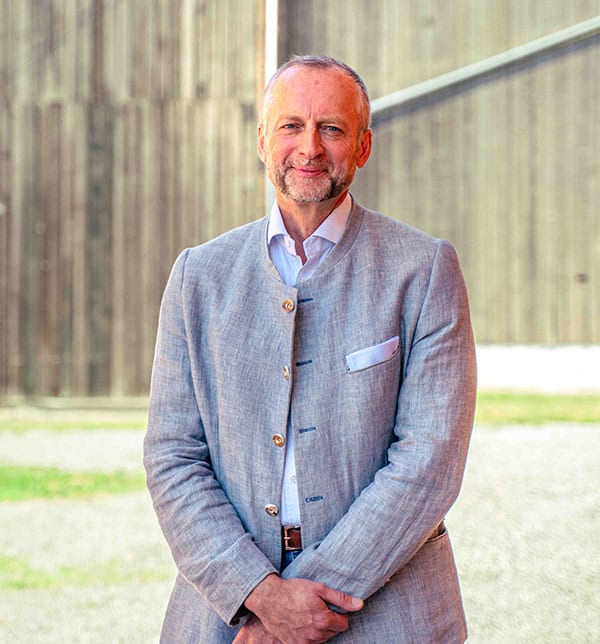
Director, Head of Beet Cultivation and New Plants, Südzucker AG
Dr Georg Vierling studied Agricultural Sciences at the University of Hohenheim near Stuttgart (Germany), where he also earned his doctorate at the Institute for Agricultural Business Management. He subsequently held various positions in raw material management in Germany and internationally with Südzucker Moldova. Today, Dr Vierling serves as Head of Beet Cultivation and New Plants, overseeing beet-related agricultural operations within the Südzucker Group.
Südzucker: From the perspective of a customer, why should somebody collaborate with Südzucker? Why Team Up for Growing Tomorrow?
Dr Georg Vierling: Südzucker is close to its growers and close to the field. For example, sugar beet is a sustainable crop that fulfills all the requirements for sustainable food production. We have ambitious targets to reduce emissions—both for Scope 1 and 2, and especially Scope 3—over the next years. We have a regional production that comes from regional growers. Beet Sugar is a natural product, produced in the sugar beet plants in the field. What we are doing in the sugar factory, we are only taking out the sugar from the beets. We also make full use of all parts of the beet—we sell the pulp as animal feed, and in the future, we will use the pressed pulp for biogas to further lower our emissions.
Südzucker: One last question: If your job had a slogan, what would it be?
Dr Georg Vierling: Be optimistic and in a good mood, always go on.
Südzucker: That is a wonderful closing remark: A message we are happy to carry forward. Thank you very much for the interview.






